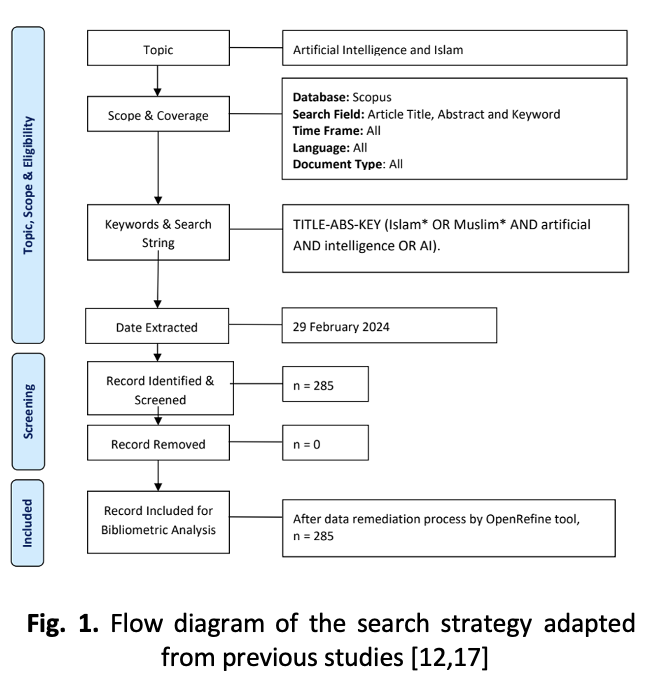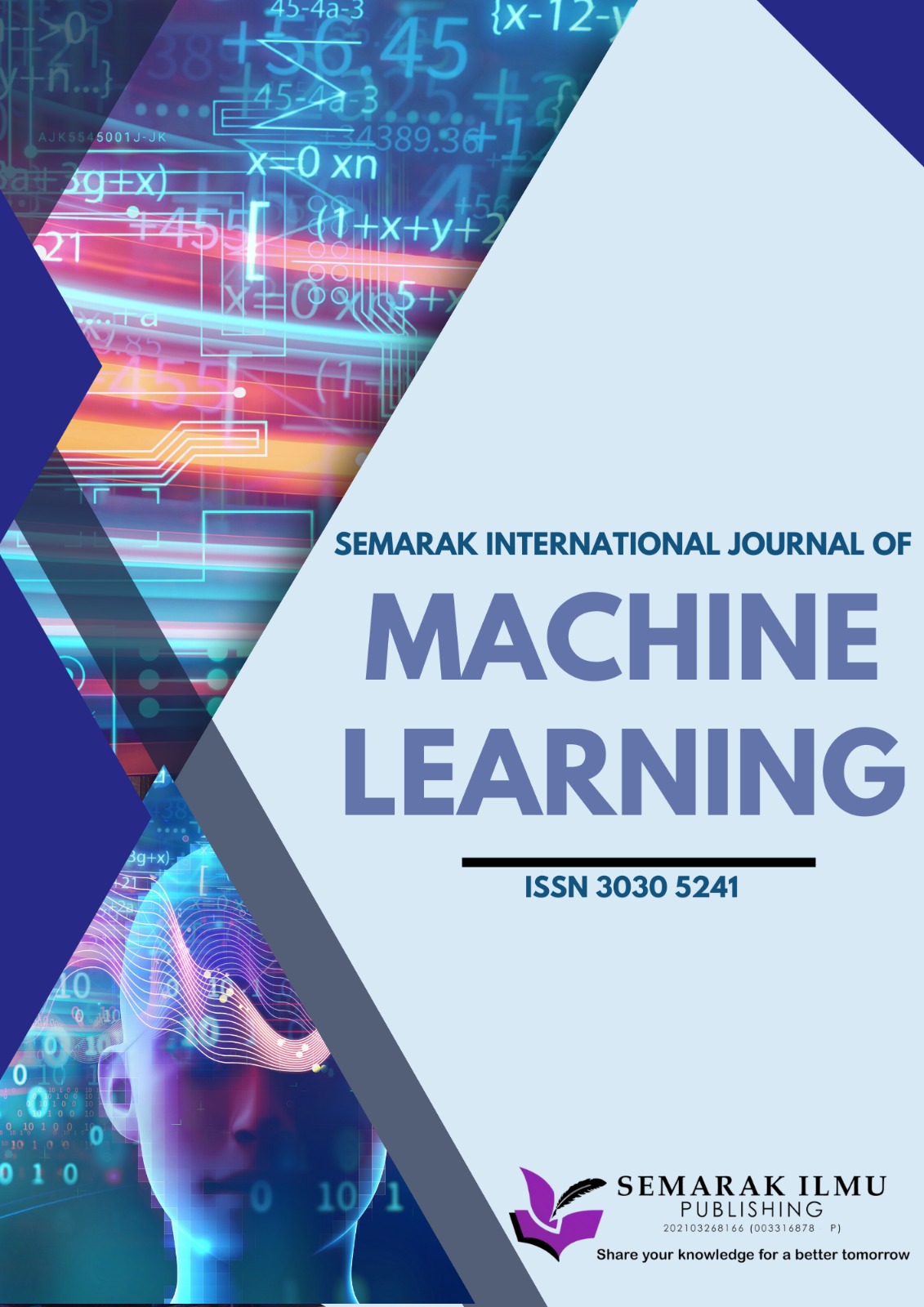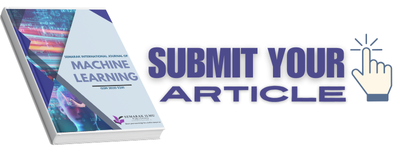Artificial Intelligence and Islam: A Bibiliometric-Thematic Analysis and Future Research Direction
DOI:
https://doi.org/10.37934/sijml.1.1.4158Keywords:
Bibliometrics, Islam, artificial intelligence, scopus, Sabah, thematic analysisAbstract
The present study examines the growing relationship between Artificial Intelligence (AI) and Islam. This analysis underscores the significance of investigating scholarly output in this field using bibliometric analysis. The study employs the Bibliometrix and Biblioshiny tools to demonstrate the diverse applications of AI in Islamic contexts and the challenges and opportunities that have arisen as a result of the COVID 19 pandemic. Furthermore, it emphasises the need for additional research to explore trends, key contributors, research themes, and future agendas in AI- Islam studies. Since the onset of the COVID 19 pandemic, there has been a noticeable shift in research focus towards AI-Islam, resulting in the emergence of four distinct niches: AI in education, Islamic banking, mobile banking, and Islamic ethics. Researchers are exploring the potential of AI tools in education, investigating the application of AI in Islamic banking, grappling with challenges and opportunities in mobile banking, and scrutinising the ethical implications of AI in the Islamic context.
Downloads










